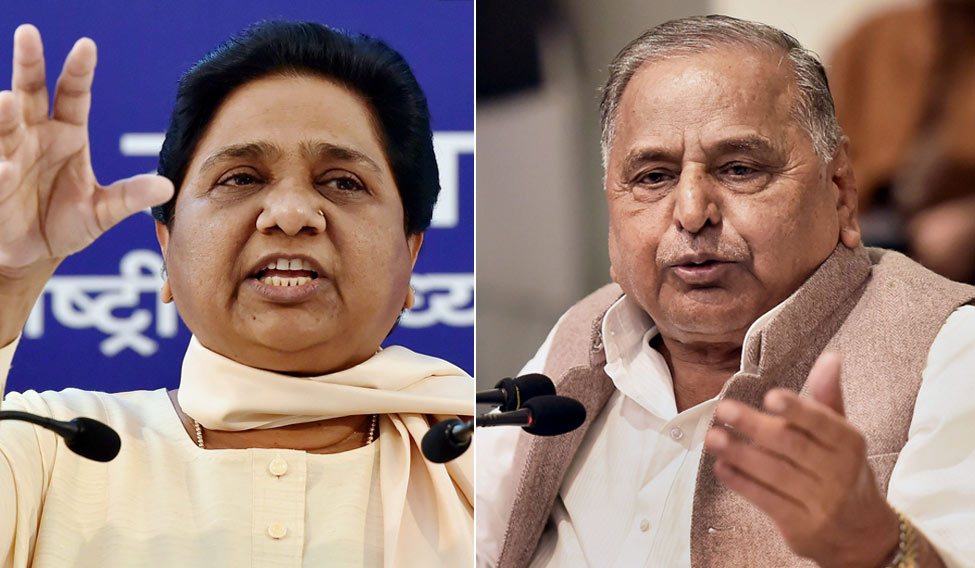On finding torn 500-rupee notes in Parsakhera Industrial Area in Bareilly, in Uttar Pradesh, soon after the demonetisation, the local people alerted the police. Simultaneously, a message appeared in WhatsApp groups that 500-rupee and 1000-rupee notes worth crores were found burnt. The police seized two bagfuls of very finely torn notes and sent samples to the Reserve Bank of India for authenticating. Torn 1,000-rupee notes were also found floating down the Ganga.
The demonetisation is likely to influence the forthcoming assembly polls in UP as large sums of cash stocked by political parties and leaders for election campaigning may have been rendered useless.
If political experts are to be believed, UP has more black money than all other states except Maharashtra. Before the last state assembly polls, officials had seized more than 043 crore of unaccounted cash in the state.
The Financial Intelligence Unit (FIU), constituted on the directives of the Election Commission to ascertain the source and quantum of black money, disclosed that 0500 crore in black was circulated in UP during the 2014 Lok Sabha elections. And, in the 2012 assembly polls, UP witnessed the use of 0300 crore of black money. Before the Lok Sabha polls, the FIU had done a thorough investigation of transactions of many bank accounts between September 2013 and February 2014 in UP. In many cases, transactions were not shown in IT returns and a majority of these accounts belonged to politicians.
Interestingly, several political leaders who have deserted the Bahujan Samaj Party in the last few months have openly alleged that party tickets were being sold. One of them, Swami Prasad Maurya, who was national general secretary and leader of opposition, made the allegation against the BSP chief Mayawati.
Some leaders in the BSP privately admit that the party fared poorly in the last two elections because of ticket sale. They say that in the assembly election 130 deserving candidates lost out at the eleventh hour to those who paid handsome amounts to the party. As a result, the BSP, which went to the polls while in power, could muster only 80 seats, they say.
R.K. Chaudhary, former minister and zonal coordinator, also left the party, hurling the same accusations against Mayawati. Chaudhary said, “The BSP is no more a party for social change. Mayawati has turned it into a personal real estate company.”
Two more BSP legislators, Harvinder Sahni from Palia and Brijesh Verma from Mallava, revolted against the chief. “Mayawati sells tickets and the price can range anywhere from Rs 2 crore to Rs 10 crore,” said Verma. “Where does this money come from? Of course it is not white money,” said Maurya.
There are many leaders and ministers in the ruling Samajwadi Party who figure in cases of disproportionate assets, which could have gone into elections as black money. Transport Minister Gayatri Prajapati is facing charges of acquiring wealth beyond his known sources of income. A complaint against him alleged that Prajapati, after becoming minister, acquired property worth Rs 300 crore in the name of his family members, friends and associates in Lucknow’s Mohanlalganj area.
According to National Election Watch and Association for Democratic Reforms (ADR), the demonetisation will have a major impact on the polls and prevent contractors, mafias and chit-fund companies, from investing in the polls. Many candidates spend black money well in advance so as to fool the commission. Only after the elections are formally announced and candidates finalised, are poll expenses taken into account.
An ADR report on black money says that 73 per cent (Rs 4,368 crore) of the income of political parties during 2004-2013 was from unknown sources. The BSP had declared its income from unknown sources as Rs 585 crore and Rs 307 crore out of it from individual donors. It claimed that each of these donors gave less than Rs 20,000, so their names need not be disclosed.
Samajwadi Party chairman Mulayam Singh Yadav said, “We, too, have been against black money and fought against its use in the polls. But the way the Modi government has taken this decision has put the common man in trouble.” He demanded the government to roll back its decision for a few days so that common people could manage their affairs. Mayawati accused the prime minister of “emotionally blackmailing” and “punishing” poor and honest people.
As another political leader said, without black money, the polls cannot be fought. There are so many expenses to be met, that with one’s genuine income it is not possible for an individual or a political outfit to contest. A candidate spends Rs 50 lakh to Rs 2 crore in an assembly poll.
State BJP president Keshav Prasad Maurya hailed the Modi government’s decision, saying, “This is a very courageous decision and this will give sleepless nights to those political parties indulging in and promoting corruption.” The party’s national president Amit Shah noted how his party’s “surgical strike” on black money would “take out all the gloss from Mulayam’s and Mayawati’s face”.
Though the parties are hurling allegations against each other, over banning the notes, they admit in private that the decision will surely reduce the flow of money in the upcoming polls.








